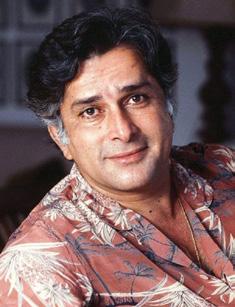
3 minute read
Remembering Shashi Kapoor
from 2017-12 Perth
by Indian Link
The youngest of the famous Kapoor brothers of Bollywood, he did not have their one defining and enduring cinematic image - Raj’s simple, honest ‘tramp’ in the Charlie Chaplin tradition or Shammi’s Elvis-like jiving, rebellious ‘playboy’ persona.
Shashi Kapoor, however, surpassed both in sheer variety of acting. Be it romantic heroes, ‘common man’ roles, decadent princes, aging poets and even angels, he brought the same charm and intensity to all of them.
He died at Kokilaben Hospital in Mumbai on 4 December at age 79 after a period of hospitalisation.
Though among his first appearances onscreen were as a young Raj Kapoor in his elder borther’s directorial debut Aag and the more acclaimed Awara, his first lead role was a Hindu fanatic in Yash Chopra’s bold Dharmputra (1961).
This happened to be one-off as Shashi, with his copybook good looks, rakish smile, infectious charm, toothy grin and languid drawl, was more suitable as a lover-boy who always got the girl. In this avatar, he once even pipped Amitabh Bachchan - in Kabhie Kabhie.
He was also famous as a reasonable foil to the smouldering angry man in a number of films and it was in one of these roles where he once spoke the four most iconic and immortal words in Bollywood’s history - Mere paas maa hai in Deewar.
Born on March 18, 1938 in the then Calcutta to Prithviraj Kapoor and Ramsarn ‘Rama’ Devi, Balbir Raj ‘Shashi’ Kapoor not only straddled commercial and ‘art’ cinema, but also became India’s first international star, starring in several acclaimed IvoryMerchant films among others.
In these he was not only cast in predictable roles - a decadent nawab (Heat and Dust), a prince-turned-ascetic (Siddhartha) or a devious local notable (in The Deceivers, opposite Pierce Brosnan) - but also in more realistic, nuanced ones - a lower middleclass teacher (The Householder), a flamboyant Bollywood star (Bombay Talkies), a narrator to Mohammad Ali Jinnah’s life (Jinnah) and a poet in the twilight of life and reputation (Muhafiz/In Custody).
But Shashi Kapoor, for all his international prowess, was also a major player in Bollywood with appearances in 148 films between 1945 and 1998, in which he was the sole hero in 61 and a lead hero in 53 multi starrers, supporting actor in 21, did 7 guest appearances and did four roles as a child artiste (including the two RK films).

These included such evergreen hits such as BR Chopra’s Waqt (where he again happened to be the youngest brother to flamboyant elder siblings Raj Kumar and Sunil Dutt); Jab Jab Phool Khile opposite Nanda; the madcap Pyar Kiya Jaa (which happened to be among the funniest movies made in Bollywood); Haseena Maan Jayegi opposite Babita, who later became his sister-in-law and mother of Karishma and Kareena; Fakira, Kaala Patthar (where he held his own against Amitabh and Shatrughan Sinha), Do Aur Do Paanch, Silsila, Shaan, Namak Halaal and New Delhi Times, where he played a crusading newspaper editor.
Then, there were some grey roles in films like Roti Kapada Aur Makaan, Satyam Shivam Sundaram, Kalyug - a contemporary retelling of the Mahabharata in which his character is named Karan, and is totally like his mythological namesake, including in the manner of death.
This was still not the entirety of Shashi Kapoor’s contribution.
In 1980, he started his own film company, using his Bollywood earnings into making films with the likes of Shyam Bengal and Aparna Sen. These included gems like 36 Chowringee Lane, which saw his wife, veteran theatre actor Jennifer Kendall as an aging teacher in a changing, oblivious world, Junoon, Vijeta - a paean to the Indian Air ForceUtsav and Kalyug.
He also had acclaimed performances in some of them, particularly the 1857 revolt drama Junoon where it takes a stern Naseeruddin Shah to remind him of his duty.
His contribution was recognised with the Filmfare Lifetime Achievement award in 2010 and the highest accolade - the Dadasahab Phalke Award in 2015.
In his life too, he played several roles - a member of an already famous film clan marrying into another performance- inclined family of Jennifer Kendall, India’s first international star, arguably the most handsome Hindi film actor of that period, a producer who backed some of the best independent movies in India in the 1970s and 1980s, a theatre enthusiast, the family man who did all he could to support his household - even if it meant acting in a few rather terrible (but well-paying) movies, as recent biographer Aseem Chabbra maintains. A star definitely, he was, above all, an eminently likeable star as all his contemporaries and co-stars attest willingly. And that is ultimately what’s important.






